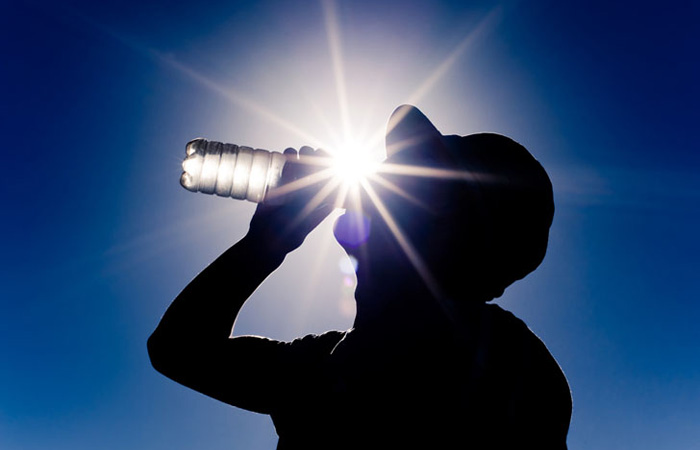Manitoba Health, Seniors and Active Living is warning people about potential hot conditions for central and northern regions of the province.
Environment and Climate Change Canada is forecasting high temperatures in Manitoba on Sunday, and climbing Monday and Tuesday. This system will bring hot conditions to central and northern Manitoba (including Flin Flon, The Pas, Norway House, Lynn Lake, Thompson and may also include Grand Rapids), with some areas experiencing this extreme heat for two to three days.
Everyone is at risk for the effects of heat. However, during a period of prolonged heat, older adults, people with chronic illness and people living alone have a particularly high risk for heat illness, especially if they are living in an urban area or do not have air conditioning. Others at greater health risks to heat include infants and young children, and people who work or exercise in the heat.
Take care of yourself and others. Regularly check on neighbours, friends and older family members, especially those who are ill or living alone, to make sure they are cool and drinking water. Visiting is best because it is easier to identify signs of heat illness that could be missed over the phone.
Never leave people or pets alone in a parked vehicle or direct sunlight.
Certain substances, including amphetamines, MDMA (ecstasy), cocaine, alcohol and cannabis, can alter mental status as well as increase the risk of over-heating. Some medications can also increase your risk, so it’s important to ask your doctor or pharmacist whether the medication you’re taking affects your ability to cope with heat.
If you have many of the following symptoms, your body may be overheating and at risk of heat illness or heat stroke:
- headache;
- red, hot and dry skin;
- dizziness;
- confusion;
- nausea;
- rapid weak pulse; and
- a complete or partial loss of consciousness.
The longer a person’s body temperature is above +40 C (+105 F), the greater the likelihood of permanent effects or death.
If these symptoms occur, immediately move to a cool place and drink water.
Emergency medical care may be needed depending on the severity of symptoms. If someone has a high body temperature, is unconscious or is confused, call for help. While waiting, cool the person right away by moving them to a cool place, apply cold water to large areas of the skin or clothing and fan the person as much as possible.
Heat illnesses are preventable. The health effects of heat can be reduced by:
- drinking plenty of liquids, especially water, before you feel thirsty;
- wearing loose-fitting, light-coloured clothing and a wide-brimmed hat;
- planning outdoor activities during cooler times of the day;
- limiting alcohol consumption;
- avoiding sun exposure and considering cancelling or rescheduling outdoor activities;
- going to a cool place such as a mall, community centre, public library or place of worship;
- taking a cool shower or bath; and
- blocking sun out by closing awnings, curtains or blinds during the day.




